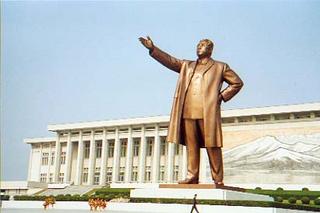
I've just come back from a screening of the documentary
Sisters in Law, by Kim Longinotto, who also directed
Divorce Iranian Style. Both are filmed without commentary, and follow the stories of various women trying to seek justice for themselves within a traditional legal system.
Sisters in Law was filmed in Cameroon with Florence Ayisi, and follows a number of cases - for example that of a Muslim woman called Amina, who succesfully prosecutes and divorces her husband for beating and abusing her. She was the first woman to obtain such a prosecution in her area, and she was helped by a group of Cameroonian women lawyers, prosecutors and activists. It would be fatuous to call the film inspiring, since the stories were so sad and the lives they described were so harsh, and, besides, the fight belongs to them and not to well-meaning observers. But the film concluded with the first Cameroonian woman judge introducing Amina to her legal students - most of them women - and showing to them by inspiring example, how a brave stand by a single individual could force society to change.
Kim Longinotto was present at the screening to answer questions at the end. One criticism raised was that as a Western woman filming the proceedings, she was inevitably going to be intervening herself in the world that she films, and that she couldn't pretend to be some kind of 'neutral observer'. Longinotto readily conceded this, and made quite clear that she was
engaged, as a film maker, in the struggles she documented. Amina was apparently very keen for her case to be filmed, and this was clearly, in part, in order to exert pressure on the judges, who would be conscious that their decision would be made "in the eyes of the world". On the other hand, it is strange, remarked Kim Longinotto, how soon people forget that the camera is present, and Amina, on returning home from court, was asked "Were there any other women there with you?", and she replied, quite unselfconsciously, "No! Only me!" It's interesting in that respect that Longinotto uses quite a large camera, and avoids using hidden cameras, and this may paradoxically result in more natural behaviour.
The film was made without commentary, and Longinotto was also criticised for this, for not contextualising the society which she filmed...
"What is the ratio of Muslims to Christians in Cameroon?" "What are the various language and ethnic divisions?" But, in truth, no amount of contextual facts will force the viewer to perceive another society with a humane sensibility. Longinotto changes the world through her films by first altering bare perceptions, by appealing to conscience. And it is only on such a base that facts have much relevance or use. I saw
Divorce Iranian Style in 1998 and it was the first time I had ever seen Iranians outside the
Death to America pantomimes or war reporting. And any slight knowledge I have of Iran, based on books like Roy Mottahadeh's
The Mantle of the Prophet, was founded on the first shock of human recognition. Talk of airstrikes on Iran with nuclear-tipped warheads is absolutely dependent on people never seeing films like
Divorce Iranian Style, or Longinotto's other Iranian documentary
Runaway. One of the most popular Iranian films in recent years was a satire on the clergy, called
The Lizard. It has great popular appeal, but it was only ever shown in the UK at the ICA as far as I'm aware and is only commercially available on a wretched bootleg from iranian.com. When Iranian graphic artist Marjane Satrapi visited Utah to give a reading, someone asked her "Can you see the moon from Iran?" Artists like Longinotto and Satrapi have to build on a surface of almost complete ignorance, but the question is actually a rather sweetly poetic one - and the questioner at least had the interest to attend a talk by Satrapi. When al-Jazeera interviewed Israeli politicians, I believe it was the first time many in the region had heard an Israeli speak. There are actually very few Israeli films released in the West; while its news profile is very high, its cultural - its human - profile is almost non-existent. And if that is true in the West, it is probably all the more true in the Arab world. It helps aid the process of demonization. "Where are your horns?", my Israeli colleague was asked.
Longinotto prefers to film in medium shots, avoiding close-ups, rapid cutting or ostentatious camera-work. It is a very modest, unobtrusive style. That may in part be the reason for the immense emotional power of her work. Her films almost always bring tears to the eyes, tears of longing and of shame on the part of the viewer, not so much the smug tears of empathy. It is the longing to make a connection, to reach out an authentic hand. And the means by which Longinotto consistently achieves this is mysterious. To me, it is an alchemy produced by her engagement, by the value her art places on justice and truth. The greatest art is a moral challenge to the viewer and is itself the product of a moral sensibility. The alternative is amusing, but does no more than fiddle at the burning. I was reminded, watching
Sisters in Law and listening to Longinotto, of Peter Watkins, of
Culloden and
Punishment Park ....and also of Paul Morrissey and Andy Warhol.
Morrissey is quoted in Bob Colacello's memoir and biography of Warhol,
Holy Terror, as saying to him, "I mean, what could be more ridiculous than the pompous, pseudointellectual notion that the director is the most important person on a movie? Everyone knows the most important person on a movie is the
star!" Morrissey, Longinotto and Watkins are united by their determination to efface themselves as artists before what they film, for their moral commitment, unsparing and hostile to compromise, and by the mysterious power of their work, bestowed like a blessing upon the righteous, and impossible to fake or imitate. Aleister Crowley wrote in Liber AL vel Legis,
"Every man and every woman is a star", and between the starry potential envisaged by Crowley and the grimy, abject starriness of a Morrissey subject, are the figures of Amina in
Sisters in Law, or the little girl taking the place of her clerical father in
Divorce Iranian Style, and dispensing satirical justice from his chair. They are stars, and Longinotto their committed observer.
The BrightLights Film Journal has an overview of Longinotto's work
hereAnd Red Pepper has a very brief
interview




 PART ONE
PART ONE



